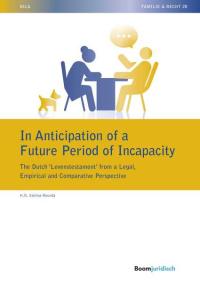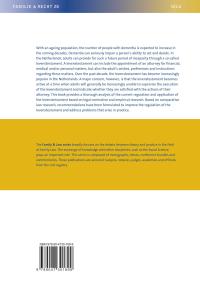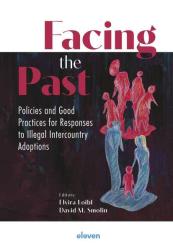In Anticipation of a Future Period of Incapacity: The Dutch ‘Levenstestament’ from a Legal, Empirical and Comparative Perspective
With an ageing population, the number of people with dementia is expected to increase in the coming decades. Dementia can seriously impair a person’s ability to act and decide. In the Netherlands, adults can provide for such a future period of incapacity through a so-called levenstestament. A levenstestament can include the appointment of an attorney for financial, medical and/or personal matters, but also the adult’s wishes, preferences and instructions regarding these matters. Over the past decade, the levenstestament has become increasingly popular in the Netherlands. A major concern, however, is that the levenstestament becomes active at a time when adults will generally be increasingly unable to supervise the execution of the levenstestament and indicate whether they are satisfied with the actions of their attorney. This book provides a thorough analysis of the current regulation and application of the levenstestament based on legal-normative and empirical research. Based on comparative law research, recommendations have been formulated to improve the regulation of the levenstestament and address problems that arise in practice.
The Family & Law series broadly focuses on the debate between theory and practice in the field of Family Law. The exchange of knowledge with other disciplines, such as the Social Science, plays an important role. This series is composed of monographs, theses, conference bundles and commentaries. These publications are aimed at lawyers, notaries, judges, academics and officials from the civil registry.









